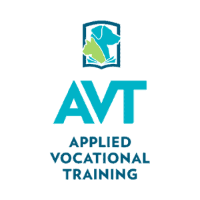
This role has a low level of AI exposure. Core skills such as adaptability, social intelligence, and complex physical tasks remain beyond the capabilities of current AI.
Explore all careersA Wildlife Carer cares for injured native animals and orphans until they can be released back into the wild, requiring flexibility and patience.
Get qualified to work as a Wildlife Carer with a course recognised across Australia. Speak to a training provider to learn more.















In Australia, a full time Wildlife Carer generally earns $1,200 per week ($62,400 annual salary) before tax. This is a median figure for full-time employees and should be considered a guide only. As you gain more experience you can expect a potentially higher salary than people who are new to the industry.
 Courses.com.au Team
Courses.com.au Team
The number of people working in this industry has remained stable in recent years. There are currently 16,500 people employed as an animal attendant in Australia and many of them work as Wildlife Carers. Wildlife Carers may find work across all regions of Australia.
Source: Australian Government Labour Market Insights
 Courses.com.au Team
Courses.com.au Team
If you’re interested in becoming a Wildlife Carer, consider enrolling in a Certificate III in Captive Animals. This course covers a range of topics including rescuing animals, applying first aid, rehabilitating native wildlife and caring for very young animals.
 Courses.com.au Team
Courses.com.au Team
Browse occupations related to Wildlife Carer



Are you passionate about wildlife and looking to make a difference in New South Wales? Enrolling in Wildlife Carer courses in New South Wales can be your first step towards a rewarding career protecting and rehabilitating native fauna. These courses provide essential training on animal welfare, conservation practices, and hands-on experience needed to excel as a Wildlife Carer. With a variety of training providers across the region, you can find courses that suit your schedule and learning style, ensuring that you receive the best education possible.
Upon completing Wildlife Carer courses, you may find yourself drawn to related professions within the animal care sector. For instance, roles such as Pet Groomer, Animal Attendant, or Kennel Hand can benefit from the practical skills acquired in a Wildlife Carer program. Each of these career pathways contributes to the overall welfare of animals, reflecting the shared commitment among professionals in this field.
In addition to hands-on animal care roles, there are also opportunities in more specialised positions such as Zoo Keeper or Zoologist, where your training will be invaluable. Wildlife Cares often overlaps with occupations like Ecologist or Wildlife Biologist, further emphasizing the importance of conservation efforts within New South Wales. Such diverse career options ensure that you can tailor your journey according to your interests and aspirations.
In New South Wales, the natural environment is teeming with unique wildlife, making it an ideal location to focus on courses that equip you to care for these creatures. As you progress through your Wildlife Carer courses in New South Wales, you'll learn about the habitats, diets, and behaviours of various animals, fostering a deeper appreciation for the local ecosystem. Moreover, you’ll develop critical skills that prepare you for challenges in wildlife rehabilitation and advocacy within the community.
Your journey in the wildlife care sector can also lead to crucial support roles such as an Animal Welfare Officer or a Wildlife Rehabilitator. These positions not only help improve animal welfare but also enable you to engage in impactful conservation initiatives, joining others who share your enthusiasm for wildlife. By choosing the right training and career path, you can make a significant contribution to the preservation of biodiversity in New South Wales.